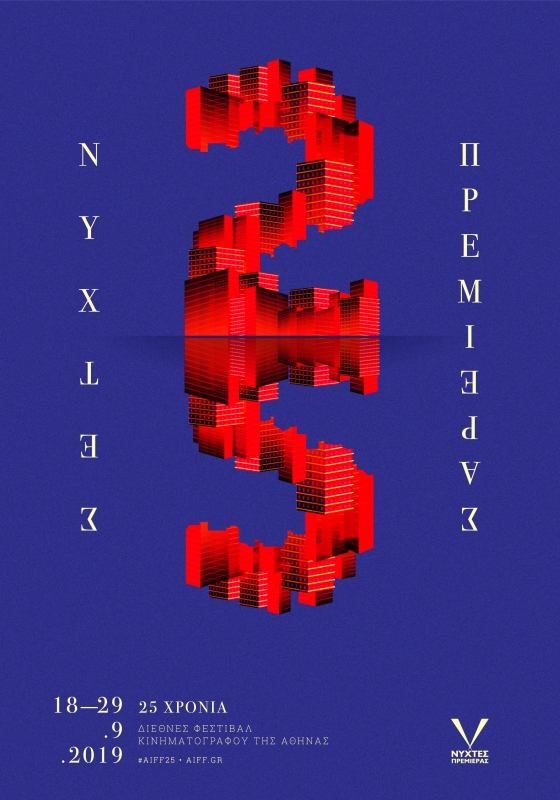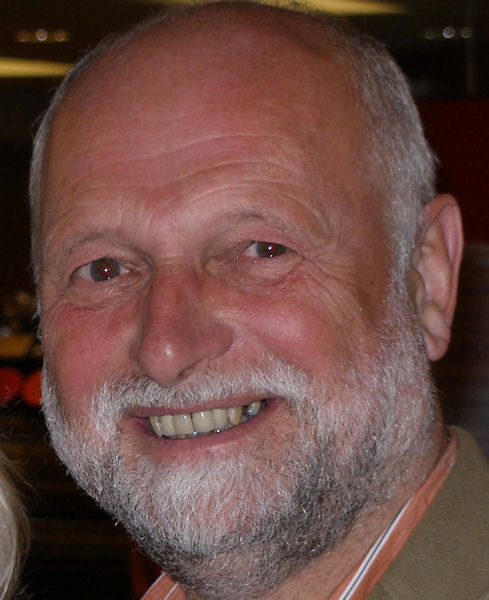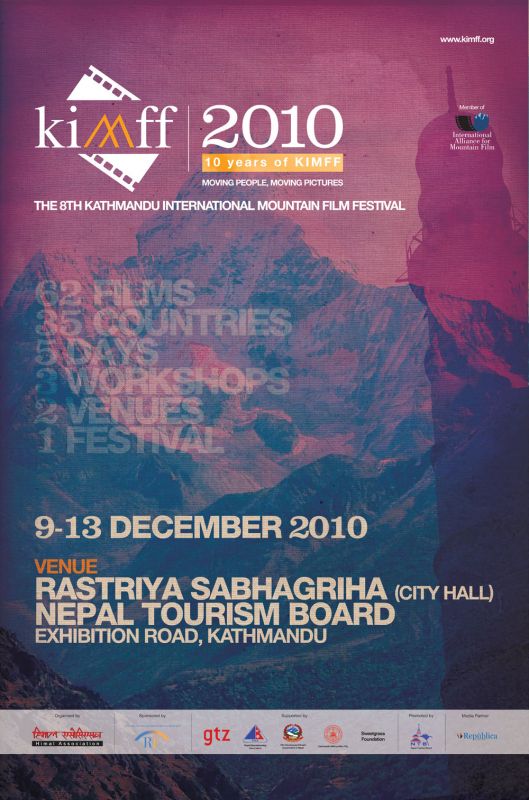In what way is this year’s KolKota festival, the 11th, different from previous years?
We have continued with the same components within the previous structure but regarding film selection we have become more serious, we are looking at more cerebral films, giving better cerebral exercise to our audiences. Our Pedro Almodovar retrospective is an example of this. And in the international section there are several lesser known directors but we have given preference to them because of their creativity.
What has made you go in this more serious direction?
We consider that our audience has become more mature and they don’t just like to watch content-based films which in the end give them nothing to take back home. Almodovar, does just that. He makes you think. I have to say it is not always easy for us to get films of our choice. We are at a place far away from the important stations of Europe; in fact we worked for three years to get Almodovar. Had we been in Europe it would have been much easier. Transport systems and communications make it difficult for us.
What is the primary objective of the Kolkata Film Festival?
Our primary objective is to make our audiences aware of film movements taking place in other parts of the world and also make the younger generation aware of the social realities elsewhere throughout the world. What is happening in a country thousands of kilometres from this place, every day, their social realities translated into celluloid, and that celluloid brought to us. Our objective is to show this. We also aim to make our young people aware of technological advances. The world is moving very fast. One day of today is 10 days of yesterday. So we want to help our people, film makers and audiences, stay abreast of the times.
How would you describe the difference between Kolkata Film Festival and other major festivals in India?
It’s unique. We have a lot of audience participation, we get much bigger turnouts than elsewhere, there is less bureaucratic interference in film selection, our festival is non-competitive and is accessible to all kinds of people. Our ticket prices are very low, averaging IR50 [about one Euro]. The objective is to reach out to the people. Last year’s attendance was about 125, 000. This year will probably attract more because we have 240 showings compared with 216 last year.
Are you seeking to attract a larger number of foreigners?
In this state [Bengal] we are multilingual and there are 26 states in India with about 52 languages. We are almost foreigners to each other. We think we can attract bigger audiences from Southeast Asia, but getting Europeans to visit…that is just a dream for us.
You mentioned that your festival is non-competitive. Will you keep it this way?
Definitely. We are the only official non-competitive festival of India and that adds to our uniqueness. My belief is that if you keep competitions out of a festival you get more participation from suppliers. Why would a producer or distributor come to Kolkata in preference, for example, to Berlin or Venice. Secondly, we just want to show films. A festival without a competition is less market-oriented and can teach more. A festival is a seat [source] of learning. This links in with my answer on objectives. A festival is a school, a place for learning.
How many people do you employ year-round?
We have only four full-timers. Although we have now put on 11 festivals without interruption, we are not that financially secure and we don’t have the budget to employ programmers who can travel from one festival to another, make personal contact and get things done. We have to rely on emails. We, and the other festivals of India, are still emerging from the age of the fax machine and we are not yet very good with communications.
You mentioned other festivals. The budget of the International Film Festival of India (IFFI) has increased since being moved to Goa last year. Is this making things difficult for you?
We are not interested in Goa, we are nothing to do with them. The problem we have with Goa is that the government of India has stipulated that if any film is screened in any Indian festival before Goa, that film cannot be included in the Goa Film Festival. The IFFI has been working for 50 years and they have organised 35 editions of the festival, so people obviously take notice of what they say.
When did they introduce this stipulation?
They introduced it earlier this year. They should withdraw it. They have shifted their festival dates to just a couple of weeks after our festival [24 Nov to 04 December], and this has given a wrong signal to film distributors over the world. About eight of the films that we had selected to screen at Kolkata had also been selected by the Goa programmers. The distributors of those eight films were given to understand that Goa is the senior festival, apparently leaving them with a difficult choice. IFFI is better known to European countries and as a result we missed some good titles this year.
What reasons has the government given to you?
They haven’t really said why they’re doing this. It doesn’t make sense. India is a vast country, roughly equivalent in size to the whole of Europe. If a film is shown in Berlin what is the problem showing in Venice or anywhere else in Europe. The audiences are not in common, nor are the guests. The same thing applies to India. We had to change our programme and our schedule at the last minute because producers and distributors didn’t know what to do. This has been a problem this year.
Might the government reverse its decision?
We have requested that they change, but we have not received a reply from them. I had hoped that I would have heard from them by now, but nothing. It has hurt me but it has not hurt the festival. I feel psychologically hurt but the structure of the festival has not been damaged. It is still in good health and I am very confident about its future.
Is the Indian government trying to use IFFI as a vehicle to boost tourism?
Most people think that’s what they are doing, and I don’t think it’s a good thing. I think that tourism and cinema are two separate kinds of entertainment. When you mix the two, you belittle both.
You have a Film Market this year for the first time. How’s it going?
Yes. We are trying to give a boost to the market. This year there are three European distributors as well as several local distributors and production units. It’s still too early to say how much business they are doing, the festival still has several days to run. But I think it will pay off for the festival and we expect this section to grow in future years.
You have a fantastic lineup of 140 films this year. Would you like to draw attention to any in particular?
Well, in addition to our retrospective on Almodovar, our homage to Krzystof Kieslowski, and our centenary tribute to tribute to Grigori Kozintsev, I am very pleased to be showing Jean-Luc Godard’s new film Our Music, Christophe Barratier’s Les Choristes, and Andre Techine’s Les Egares. Also we are showing Niceland, directed by Fridrik Thor Fridriksson (Iceland); and I am impressed with Bye Bye Blackbird directed by Robinson Savary. He’s a new director, not very well known. I have deference for the younger generation directors, my preference is for the younger generation. Jan Hryniak from Poland is also good, I like his film The Third.
Looking ahead, what changes might we see in next year’s festival?
The sections will be almost the same but we are going to double or even treble the size of the Asian section. This year we are only showing about 13 Asian films out of a total of 140, that’s less than 10 percent. Next year it will be 25 per cent or even 30 per cent. China, Japan and Korea must have greater representation. China definitely, young Chinese directors must be represented at this festival.
This is a major switch. What’s the reasoning behind it?
We have seen a lot of European productions. We have learned a lot from them and they have had a great impact on us. Now is the time for us to see what impact the Europeans have made on Asian countries. There is a lot of talent in Asia and the young directors in this part of the world need more platforms to show their work. Five years time from now I envisage that about 40 per cent of the films we show will be Asian. The other 60 per cent will be European, Latin American, Australasian and so on. And we have nothing against US independents either.
[This article originally appeared in filmfestivals.com, before fest21 existed]
 Colson Jeremy
Colson Jeremy 



























